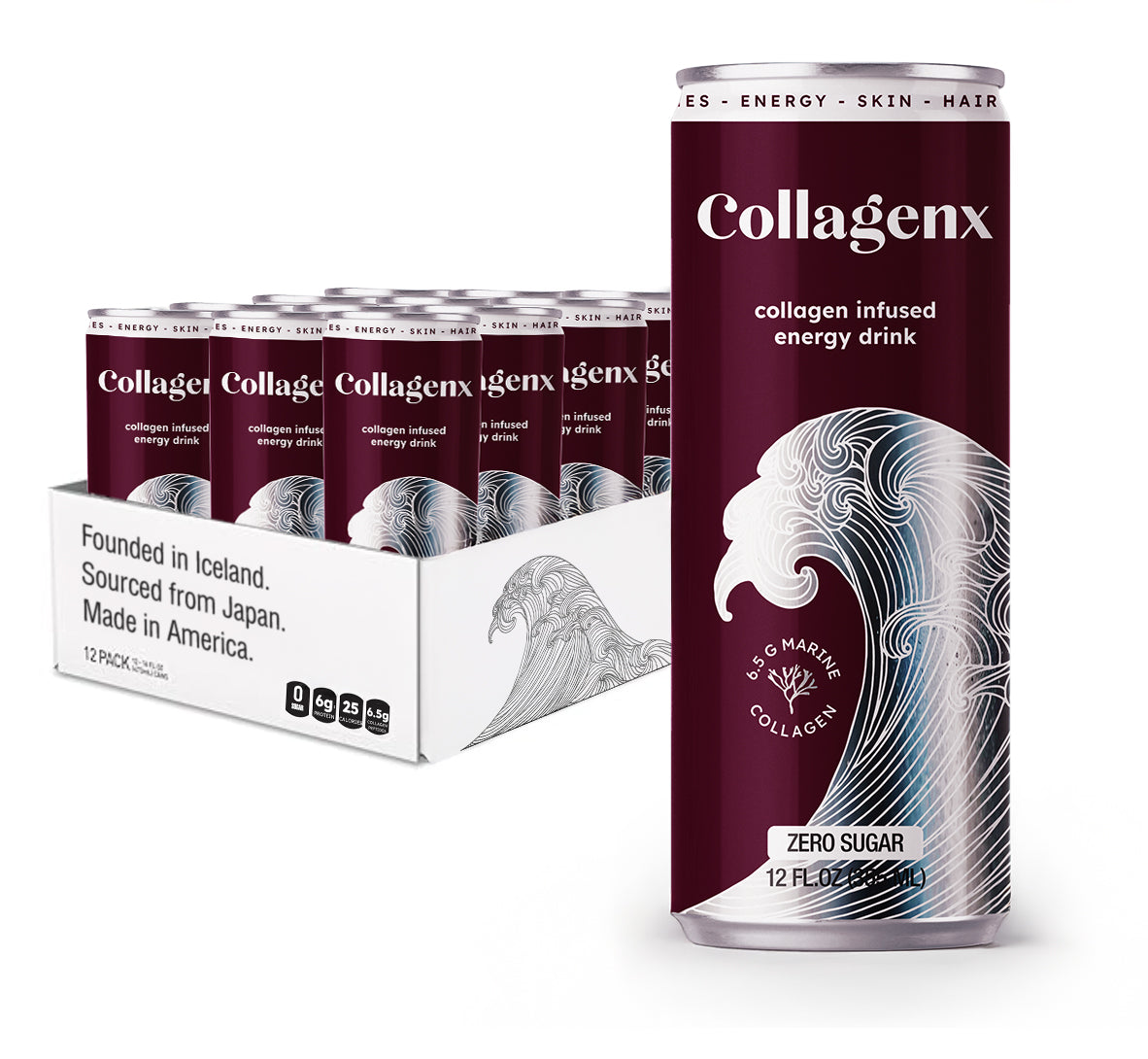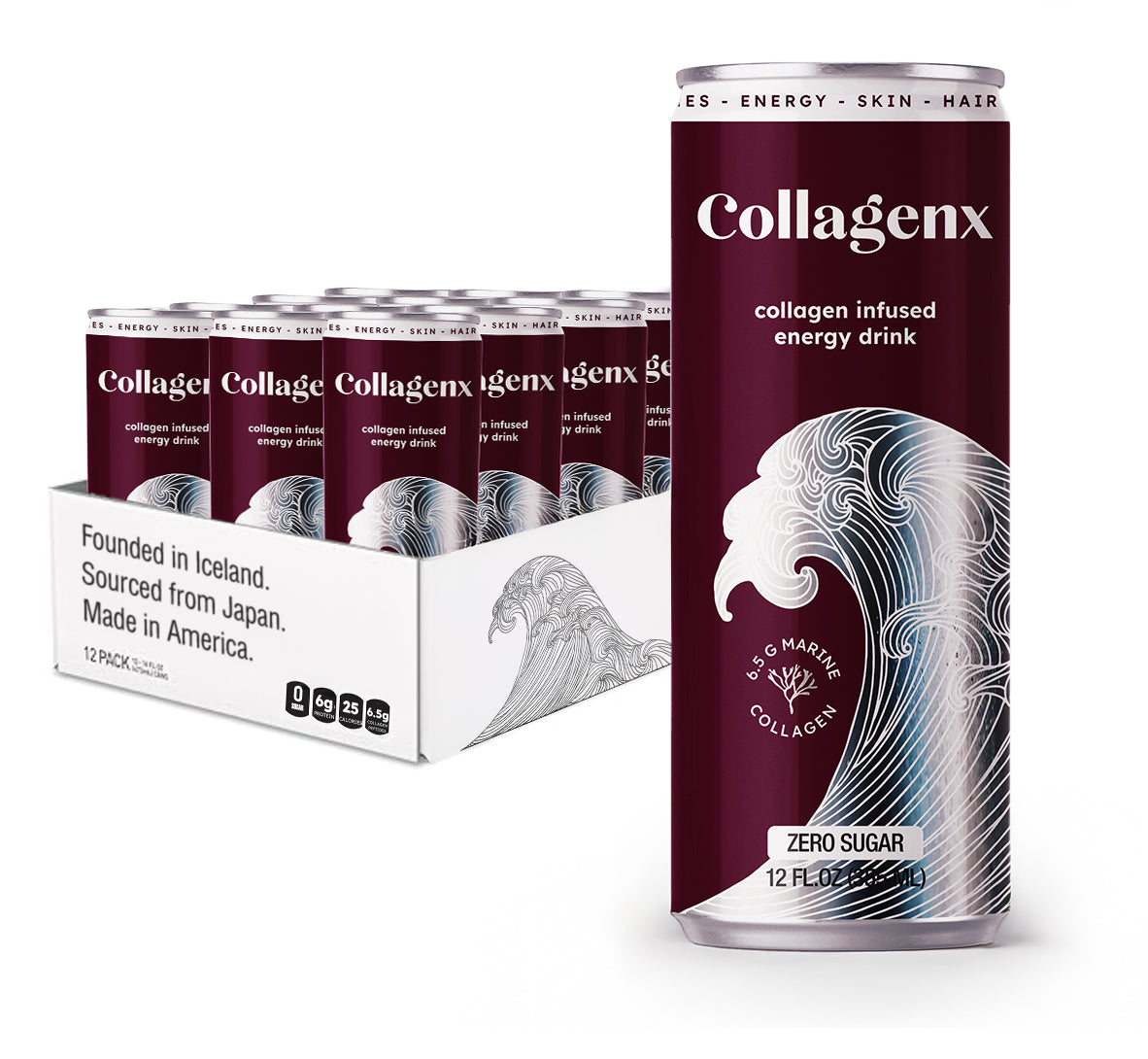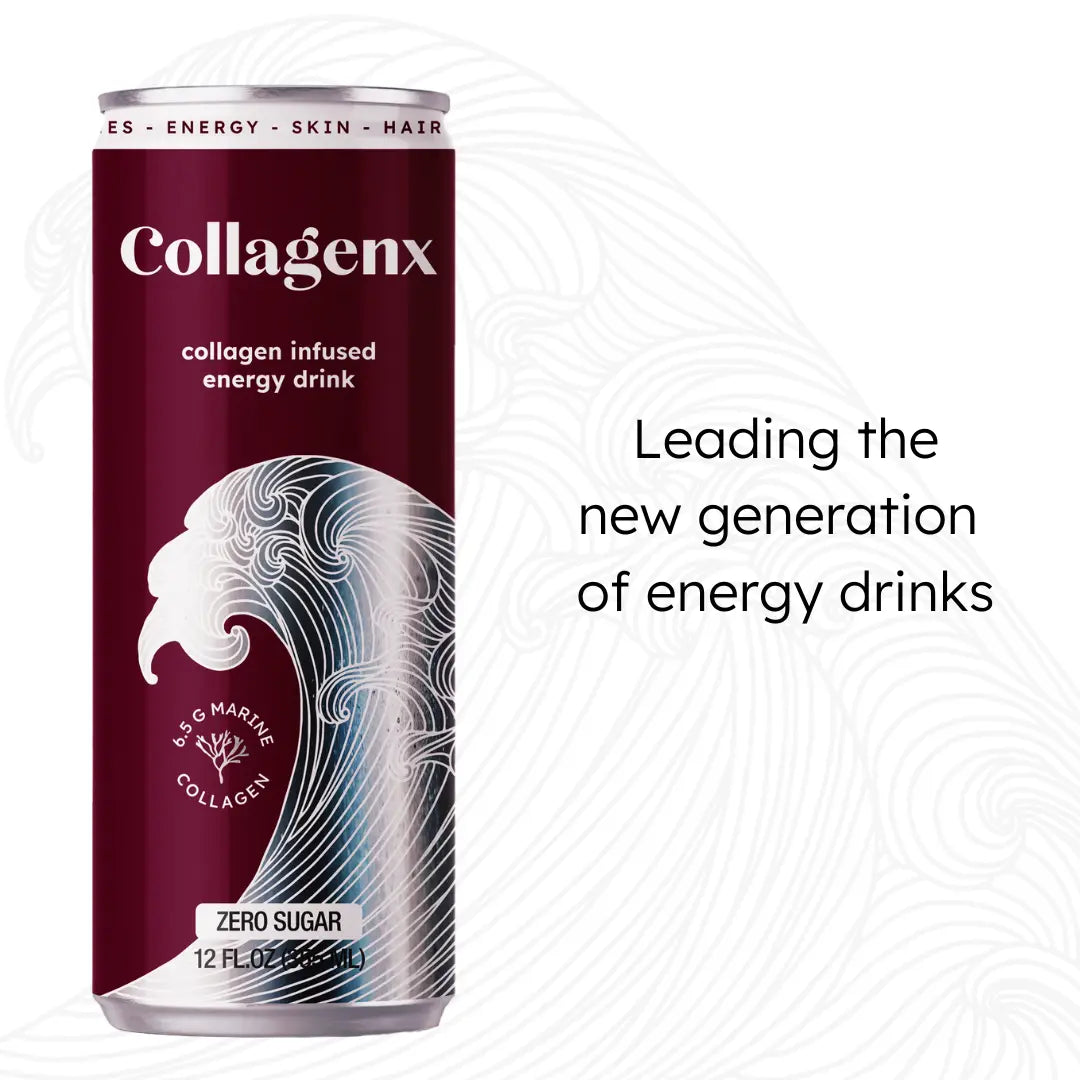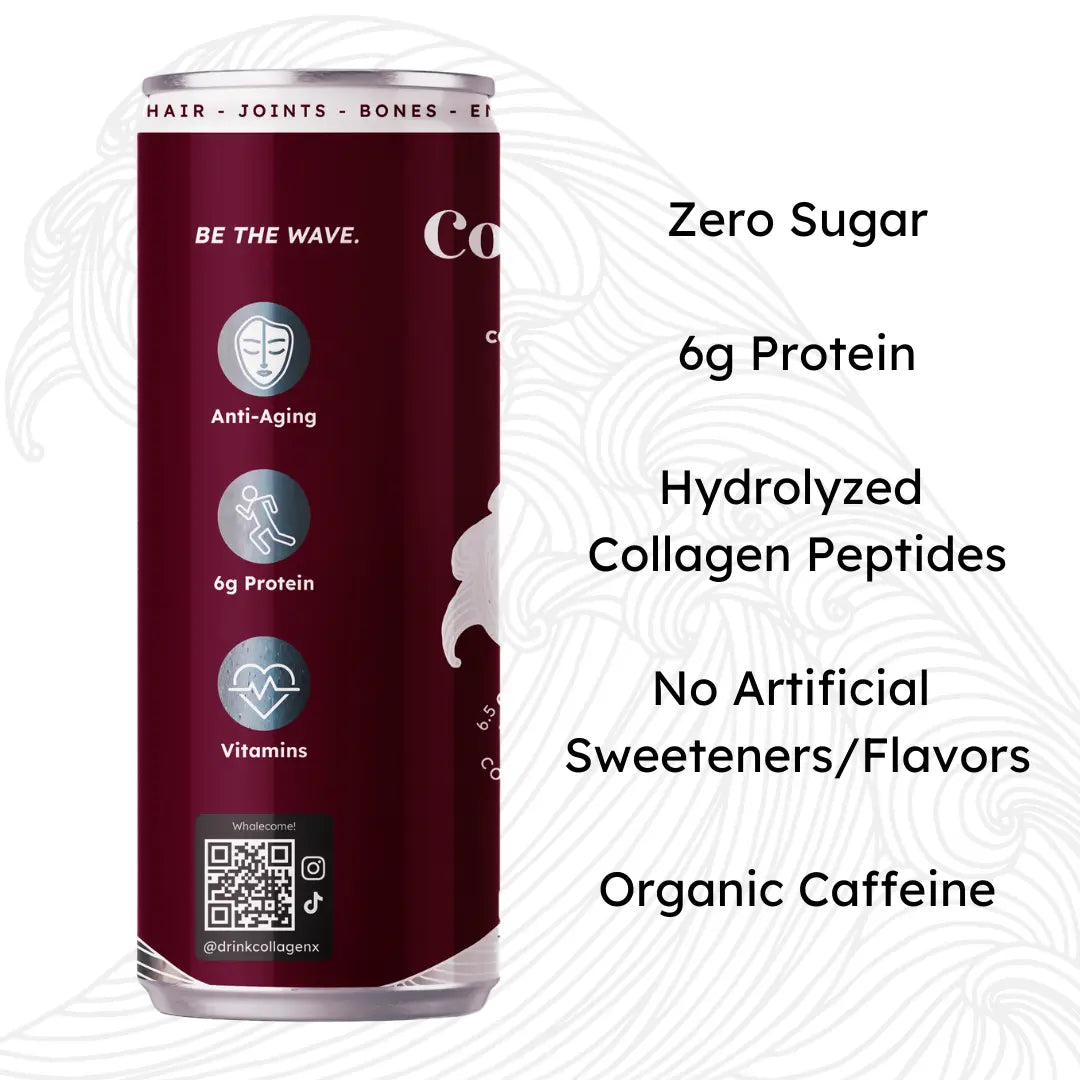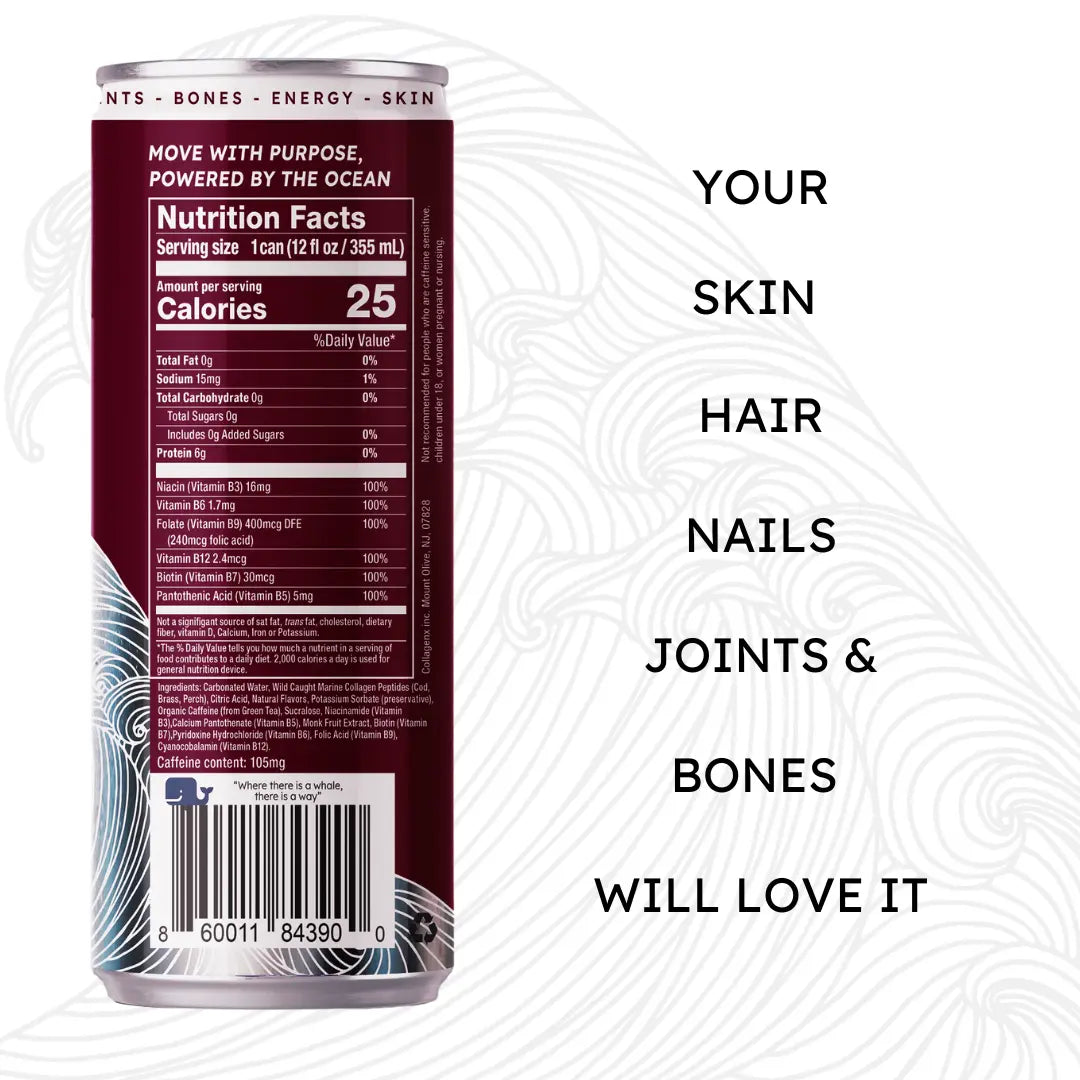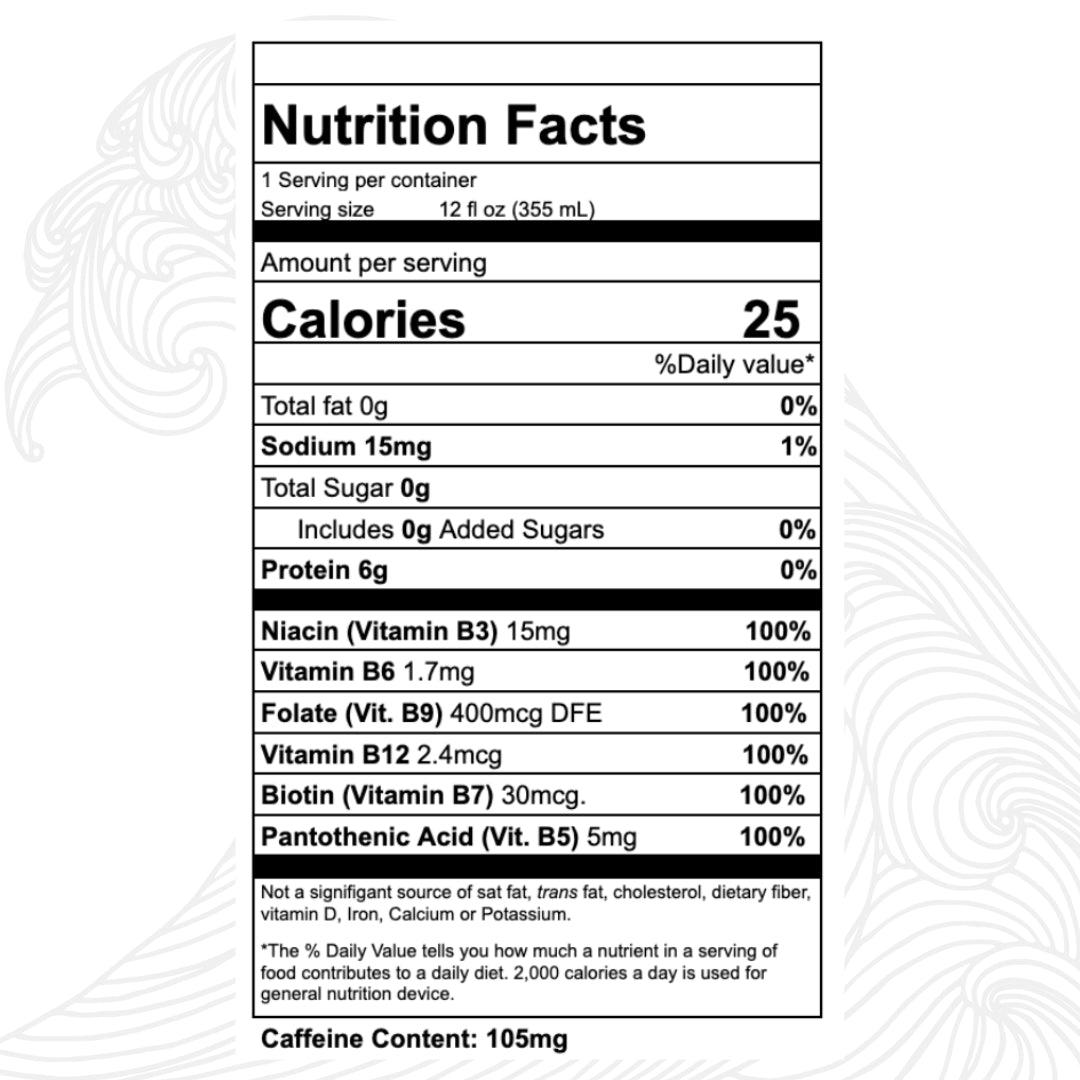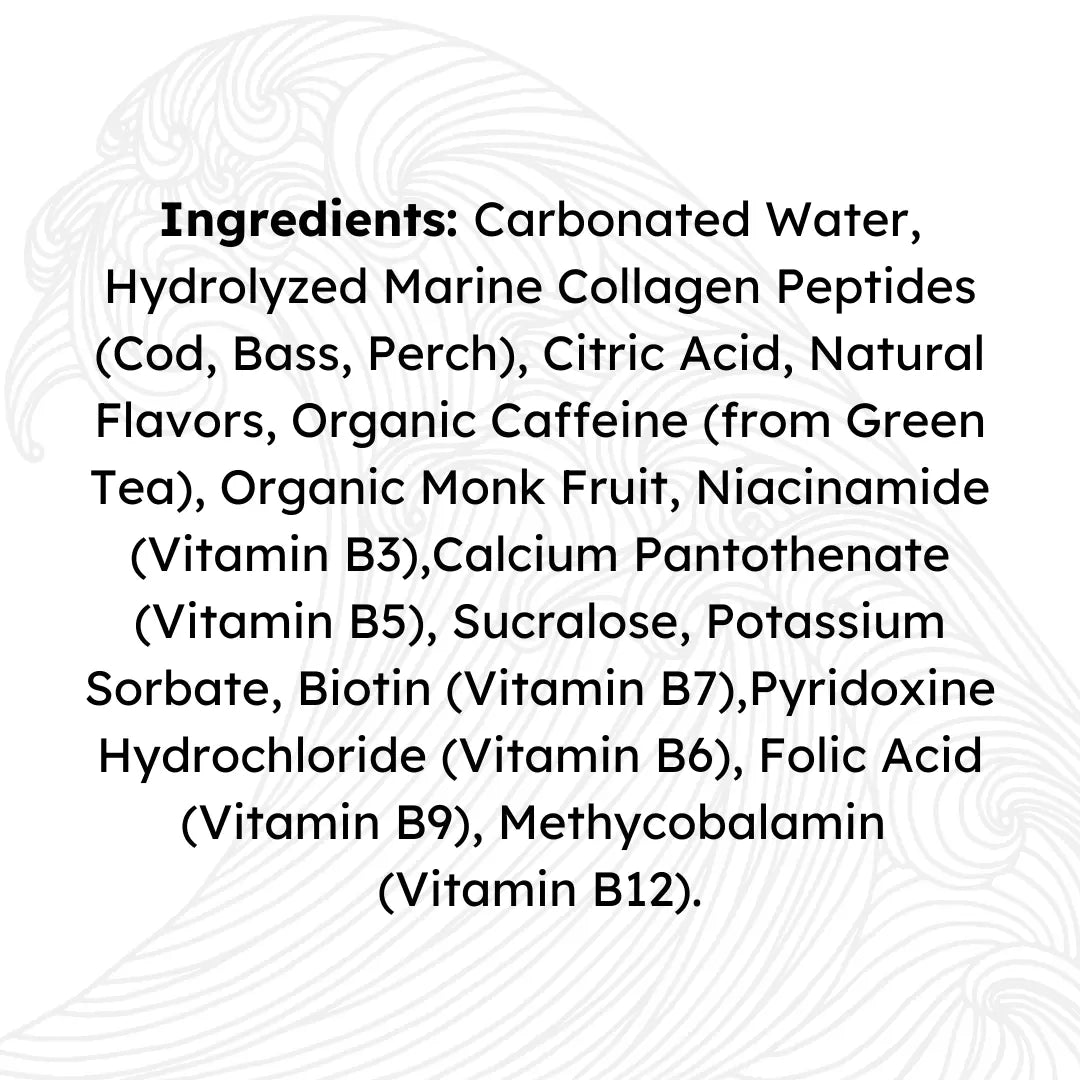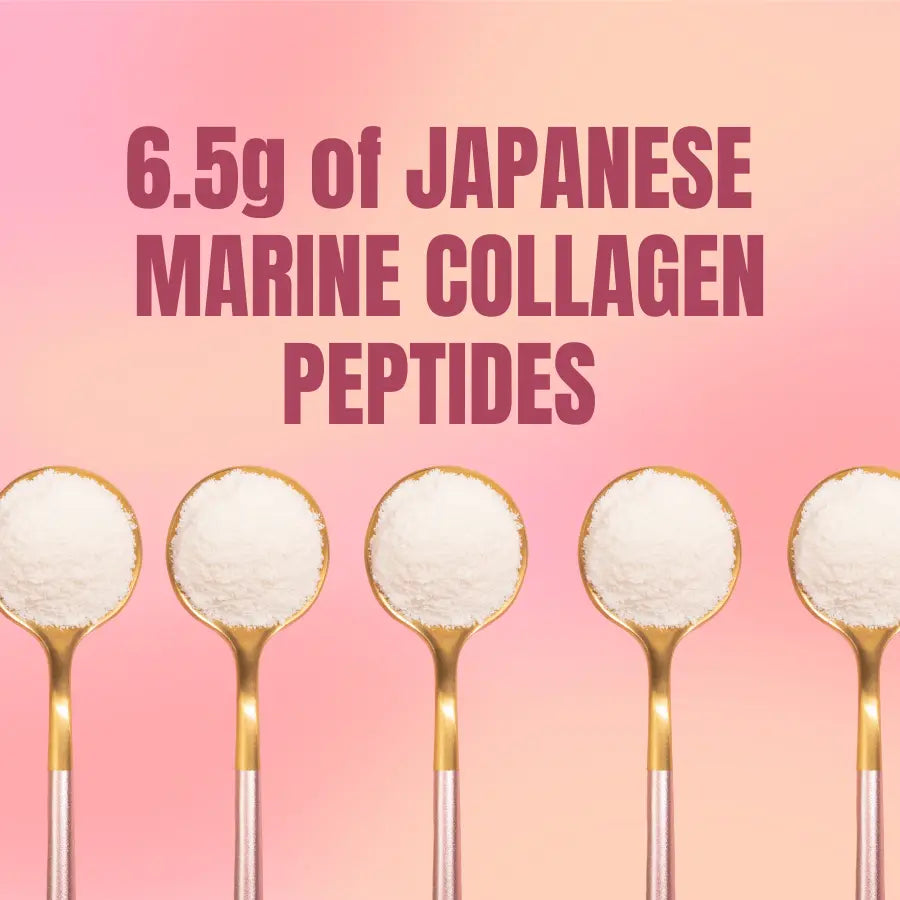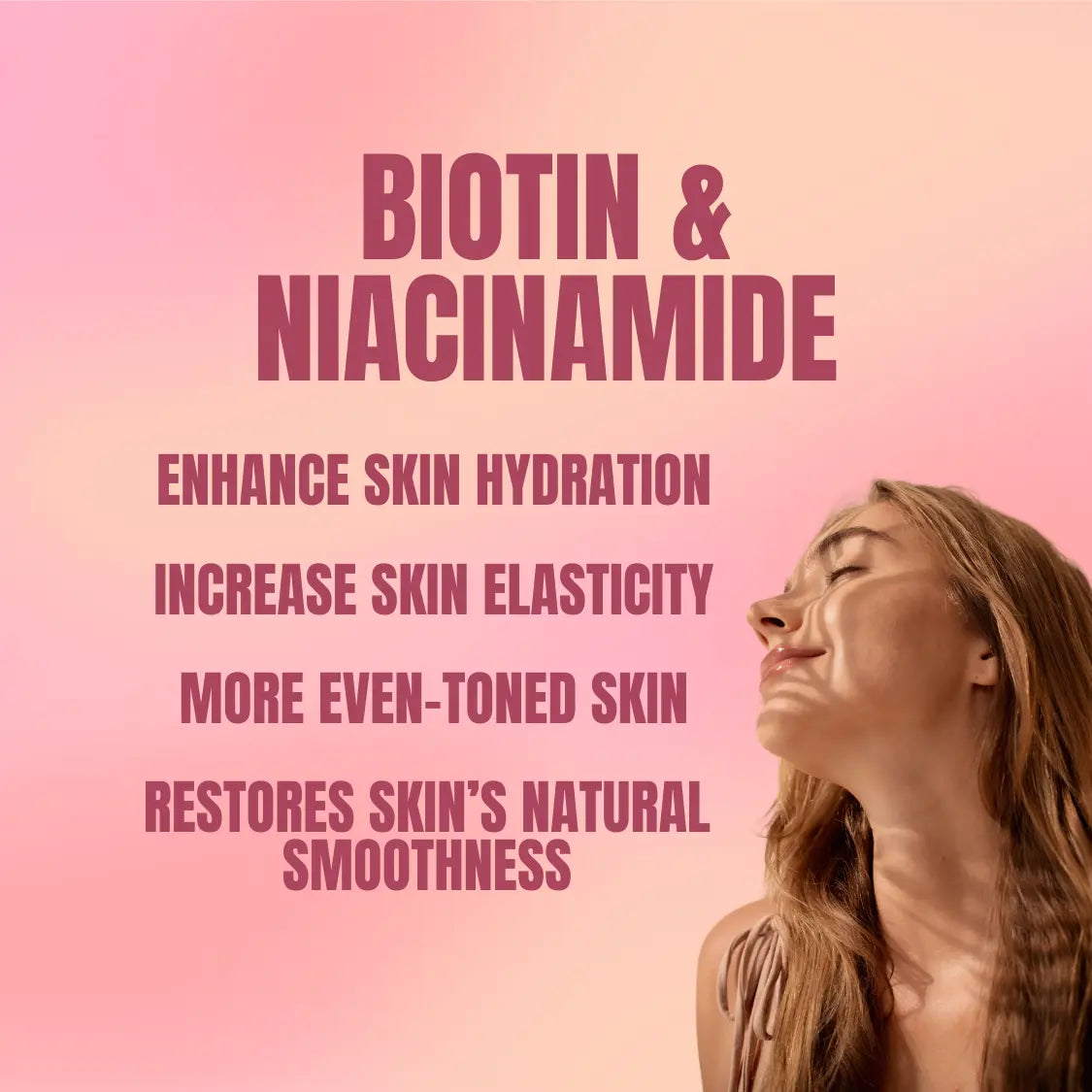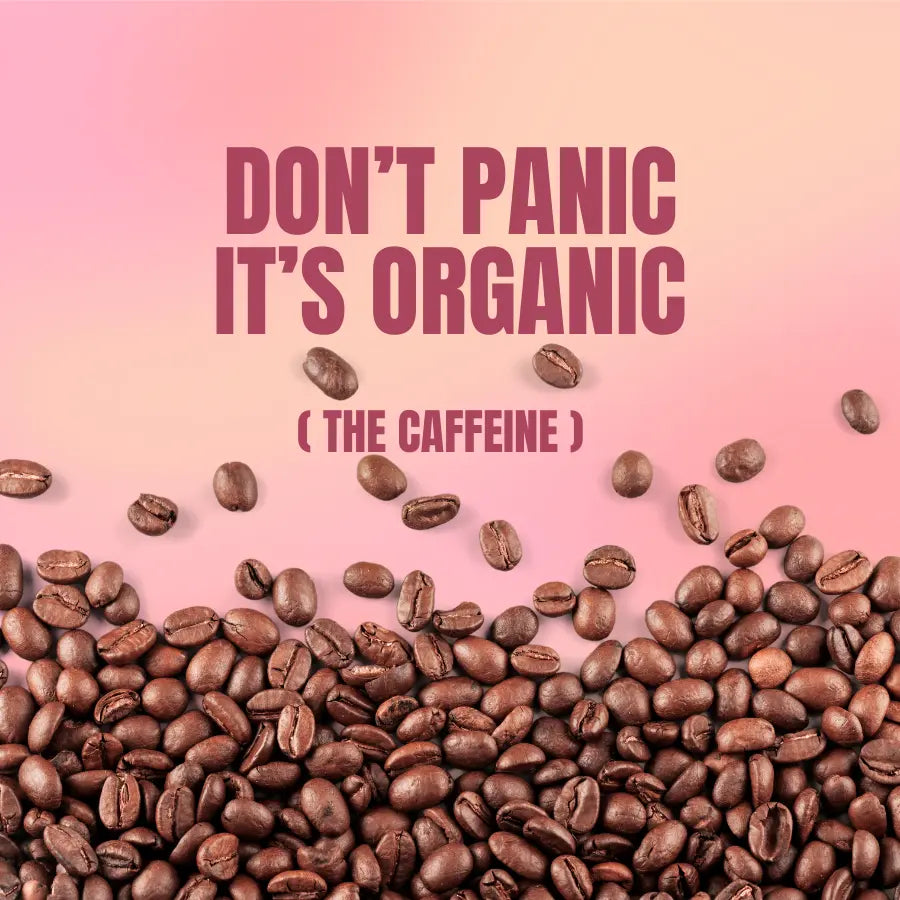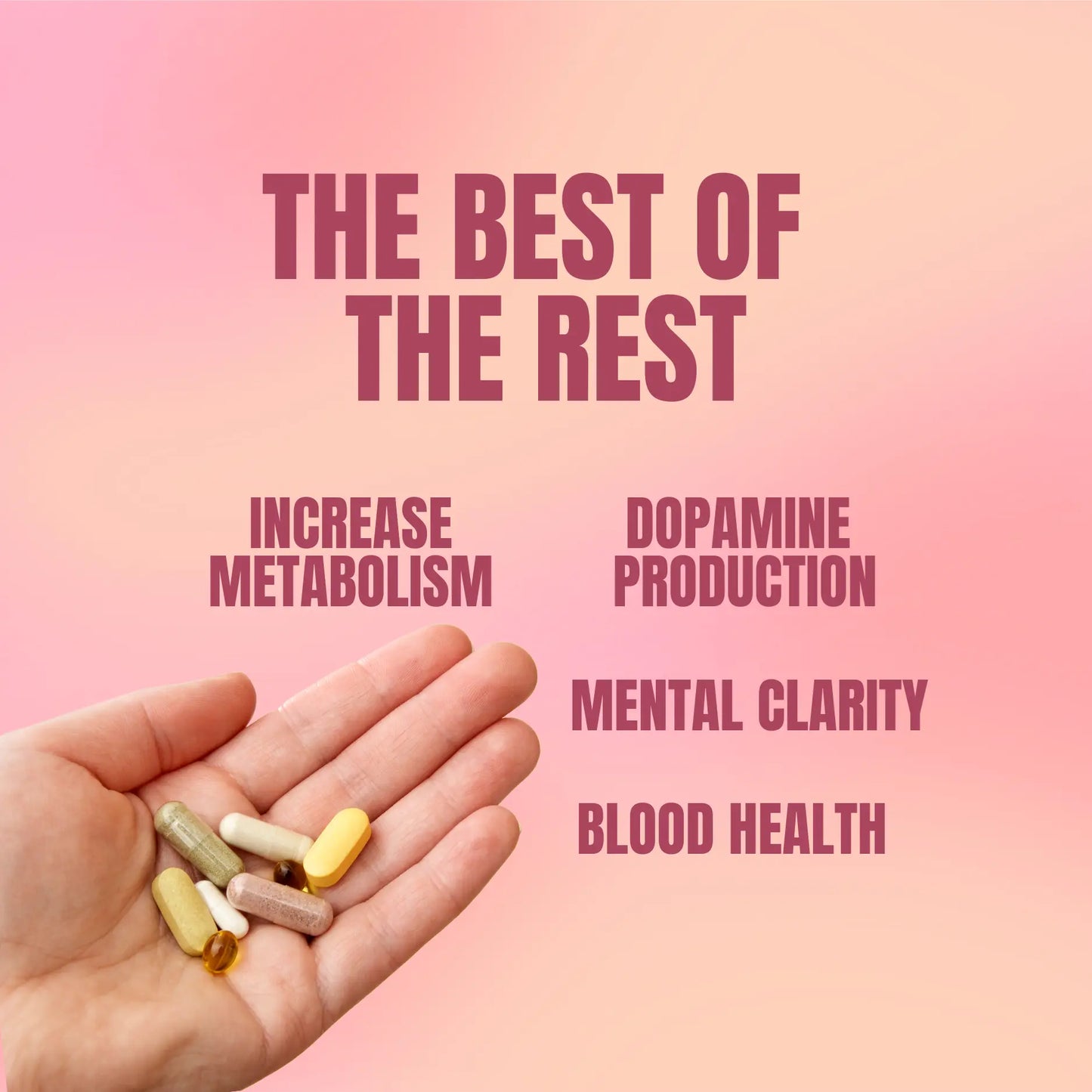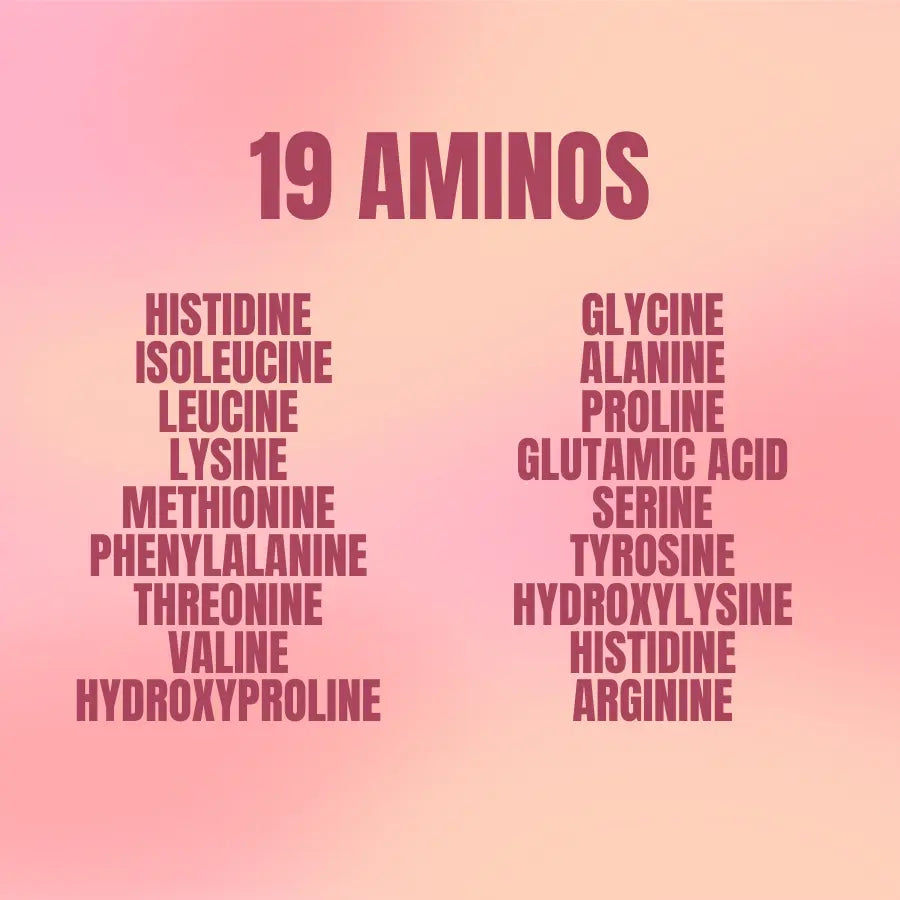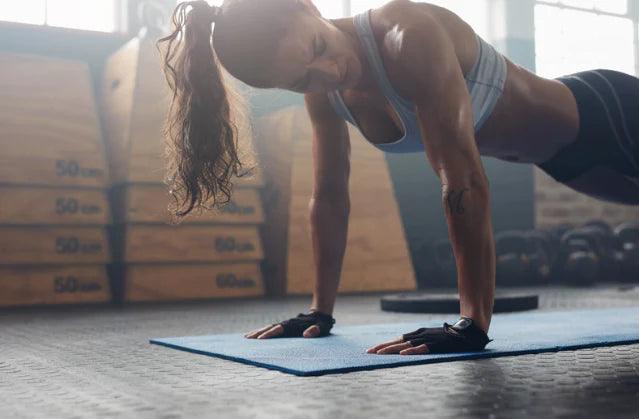
Whole Body: Collagen The Essential Building Block for a Strong and Youthful Body
By Collagenx Research Team │ 4 min read

Signs of Collagen Decline
Here are some common signs that your collagen levels may be dropping:
Wrinkles and fine lines
Sagging skin
Joint pain or stiffness
Weakened bones
Slow wound healing
If you’re noticing any of these signs, it might be time to focus on ways to boost your collagen production.
What exactly is Collagen?
Imagine your body is like a building , with bricks and glue holding everything together. Collagen is that essential glue—it provides strength, support, and flexibility to your entire body.
From your skin to your bones and joints , collagen plays a crucial role in keeping you healthy and active.
"Collagen is the most abundant protein in the human body, making up about 30% of its total protein content."
When we’re young, we have an abundant supply of collagen, keeping our skin smooth, our joints flexible, and our bones strong. But as we age, collagen levels naturally decline, causing wrinkles, joint stiffness, and bone weakness.
In this post, we’ll dive deep into the importance of collagen, why it diminishes over time, and how you can support its production to keep your body strong and youthful.
Table of content
Whole Body: Collagen The Building Block for a Strong body
Whole Body: Collagen The Building Block for a Strong body: Collagen is the most abundant protein in your body, making up around 30% of your total protein mass . It acts as the scaffolding for your tissues, providing structure, stability, and elasticity. Essentially, collagen keeps everything in place, just like the bricks and glue in a building that give it shape and strength.
Collagen is found in your:
Skin
Bones
Joints
Muscles
Blood vessels
Tendons
There are over 28 types of collagen , but the most common ones are Type 1 , Type 2 , and Type 3 —each with a specific function in your body. Together, these types of collagen form a network of support that ensures your skin stays firm, your bones remain dense, and your joints function smoothly.

Why Is Collagen so important for our bodily functions?
1. Supports Skin Elasticity and Youthfulness
Collagen gives your skin its firmness and elasticity . When you’re young, your body produces plenty of collagen, which keeps your skin smooth, plump, and wrinkle-free. However, as you age, collagen production decreases, leading to sagging skin , wrinkles , and a loss of elasticity .
Maintaining adequate collagen levels helps keep your skin looking youthful, reducing the visible signs of aging.
2. Strengthens Bones
Collagen provides the framework for your bones, giving them their strength and flexibility . About 90% of your bone’s organic matrix is made of collagen. As you age and collagen levels decrease, your bones can become more brittle, increasing the risk of fractures and osteoporosis .
By supporting collagen production, you can help maintain bone density and reduce the likelihood of bone-related conditions.
3. Keeps Joints Flexible
Your joints rely on cartilage , which is largely made of Type 2 collagen , to cushion and absorb the impact of daily movements. As collagen levels decline, cartilage wears down , leading to stiffness, discomfort, and joint pain.
Supporting collagen production can help maintain healthy, pain-free joints and improve mobility. Whole Body: Collagen The Building Block for a Strong body
"Collagen forms a network of support that ensures your skin stays firm, your bones remain dense, and your joints function smoothly. "
How Does Collagen Change As We Age?
1. Decreased Collagen Production
When we’re young, our bodies produce a plentiful supply of collagen, which keeps everything functioning smoothly. However, by the time we hit our mid-20s , our natural collagen production begins to slow down .
This decline accelerates as we age, especially after menopause in women, leading to noticeable changes like wrinkled skin , weakened bones , and aching joints .
2. Collagen Breakdown
Not only does your body produce less collagen as you age, but the existing collagen in your body also starts to break down . Factors like sun exposure , pollution , smoking , and a poor diet can speed up this process, causing your skin to lose its elasticity and your joints to feel stiffer. Whole Body: Collagen The Building Block for a Strong body. Whole Body: Collagen The Building Block for a Strong body. Whole Body: Collagen The Building Block for a Strong body

How Can You Boost Your Collagen Levels?

Fortunately, there are ways to support your body’s natural collagen production and slow down its decline . Here’s how you can keep your body’s “glue” strong and your structure intact:
1. Eat Collagen-Boosting Foods
Certain foods are rich in nutrients that help your body produce more collagen. Incorporate the following into your diet:
Bone broth : High in collagen from animal bones.
Egg whites : Rich in proline, an amino acid crucial for collagen production.
Fish : Especially the skin, which contains plenty of collagen.
Berries : Packed with vitamin C, a key nutrient that supports collagen synthesis.
Citrus fruits : High in vitamin C to help produce collagen.
2. Take Collagen Supplements
One of the easiest ways to increase your collagen intake is through collagen supplements , especially those derived from marine or bovine sources . These supplements can help improve skin elasticity , reduce wrinkles , and support joint and bone health .
Studies show that taking hydrolyzed collagen supplements can increase your body’s natural collagen production and provide numerous health benefits.
3. Use Topical Collagen Products
While ingesting collagen is the most effective way to boost your body’s collagen levels, some topical products can help promote skin elasticity and firmness. Look for creams and serums containing ingredients like retinol or peptides , which can stimulate collagen production in the skin.
4. Protect Your Skin from UV Damage
Excessive sun exposure is one of the main factors that speed up collagen breakdown. Always wear sunscreen to protect your skin and preserve collagen levels.
5. Get Plenty of Sleep and Stay Hydrated
Proper sleep and hydration play an essential role in collagen production. Your body repairs itself while you sleep, including producing collagen. Drink enough water to keep your skin hydrated and supple, helping collagen do its job more effectively.
Further readings
- The Skincare Bible: Your No-Nonsense Guide to Great Skin" by Dr Anjali Mahto
- "Lab Muffin Beauty Science" by Michelle Wong
- "The revolution of Collagen Peptides" by Dr. Neil Sadick
Different Types of Collagen, 1, 2 and 3

While all collagen types are important, the three most common types in your body are:
1. Type 1 Collagen
Type 1 collagen makes up 90% of your body’s collagen. It’s found in skin , bones , tendons , and ligaments , providing strength and structure .
2. Type 2 Collagen
Found primarily in cartilage , Type 2 collagen acts like a cushion for your joints, helping them move smoothly and absorb shocks.
3. Type 3 Collagen
Type 3 collagen is found in skin , muscles , and blood vessels . It works alongside Type 1 collagen to provide elasticity and support to tissues.
Whole Body: Collagen The Building Block for a Strong body. Whole Body: Collagen The Building Block for a Strong body. Whole Body: Collagen The Building Block for a Strong body. Whole Body: Collagen The Building Block for a Strong body. Whole Body: Collagen The Building Block for a Strong body. Whole Body: Collagen The Building Block for a Strong body. Whole Body: Collagen The Building Block for a Strong body. Whole Body: Collagen The Building Block for a Strong body. Whole Body: Collagen The Building Block for a Strong body. Whole Body: Collagen The Building Block for a Strong body. Whole Body: Collagen The Building Block for a Strong body. Whole Body: Collagen The Building Block for a Strong body. Whole Body: Collagen The Building Block for a Strong body. Whole Body: Collagen The Building Block for a Strong body. Whole Body: Collagen The Building Block for a Strong body.
Whole Body: Collagen The Building Block for a Strong body. Whole Body: Collagen The Building Block for a Strong body. Whole Body: Collagen The Building Block for a Strong body. Whole Body: Collagen The Building Block for a Strong body. Whole Body: Collagen The Building Block for a Strong body. Whole Body: Collagen The Building Block for a Strong body. Whole Body: Collagen The Building Block for a Strong body. Whole Body: Collagen The Building Block for a Strong body. Whole Body: Collagen The Building Block for a Strong body. Whole Body: Collagen The Building Block for a Strong body. Whole Body: Collagen The Building Block for a Strong body. Whole Body: Collagen The Building Block for a Strong body. Whole Body: Collagen The Building Block for a Strong body. Whole Body: Collagen The Building Block for a Strong body. Whole Body: Collagen The Building Block for a Strong body.
Whole Body: Collagen The Building Block for a Strong body. Whole Body: Collagen The Building Block for a Strong body. Whole Body: Collagen The Building Block for a Strong body. Whole Body: Collagen The Building Block for a Strong body. Whole Body: Collagen The Building Block for a Strong body. Whole Body: Collagen The Building Block for a Strong body. Whole Body: Collagen The Building Block for a Strong body. Whole Body: Collagen The Building Block for a Strong body. Whole Body: Collagen The Building Block for a Strong body. Whole Body: Collagen The Building Block for a Strong body. Whole Body: Collagen The Building Block for a Strong body. Whole Body: Collagen The Building Block for a Strong body. Whole Body: Collagen The Building Block for a Strong body. Whole Body: Collagen The Building Block for a Strong body. Whole Body: Collagen The Building Block for a Strong body.
Whole Body: Collagen The Building Block for a Strong body. Whole Body: Collagen The Building Block for a Strong body. Whole Body: Collagen The Building Block for a Strong body. Whole Body: Collagen The Building Block for a Strong body. Whole Body: Collagen The Building Block for a Strong body. Whole Body: Collagen The Building Block for a Strong body. Whole Body: Collagen The Building Block for a Strong body. Whole Body: Collagen The Building Block for a Strong body. Whole Body: Collagen The Building Block for a Strong body. Whole Body: Collagen The Building Block for a Strong body. Whole Body: Collagen The Building Block for a Strong body. Whole Body: Collagen The Building Block for a Strong body. Whole Body: Collagen The Building Block for a Strong body. Whole Body: Collagen The Building Block for a Strong body. Whole Body: Collagen The Building Block for a Strong body.
Whole Body: Collagen The Building Block for a Strong body. Whole Body: Collagen The Building Block for a Strong body. Whole Body: Collagen The Building Block for a Strong body. Whole Body: Collagen The Building Block for a Strong body. Whole Body: Collagen The Building Block for a Strong body. Whole Body: Collagen The Building Block for a Strong body. Whole Body: Collagen The Building Block for a Strong body. Whole Body: Collagen The Building Block for a Strong body. Whole Body: Collagen The Building Block for a Strong body. Whole Body: Collagen The Building Block for a Strong body. Whole Body: Collagen The Building Block for a Strong body. Whole Body: Collagen The Building Block for a Strong body. Whole Body: Collagen The Building Block for a Strong body. Whole Body: Collagen The Building Block for a Strong body. Whole Body: Collagen The Building Block for a Strong body.
Whole Body: Collagen The Building Block for a Strong body. Whole Body: Collagen The Building Block for a Strong body. Whole Body: Collagen The Building Block for a Strong body. Whole Body: Collagen The Building Block for a Strong body. Whole Body: Collagen The Building Block for a Strong body. Whole Body: Collagen The Building Block for a Strong body. Whole Body: Collagen The Building Block for a Strong body. Whole Body: Collagen The Building Block for a Strong body. Whole Body: Collagen The Building Block for a Strong body. Whole Body: Collagen The Building Block for a Strong body. Whole Body: Collagen The Building Block for a Strong body. Whole Body: Collagen The Building Block for a Strong body. Whole Body: Collagen The Building Block for a Strong body. Whole Body: Collagen The Building Block for a Strong body. Whole Body: Collagen The Building Block for a Strong body.
Whole Body: Collagen The Building Block for a Strong body. Whole Body: Collagen The Building Block for a Strong body. Whole Body: Collagen The Building Block for a Strong body. Whole Body: Collagen The Building Block for a Strong body. Whole Body: Collagen The Building Block for a Strong body. Whole Body: Collagen The Building Block for a Strong body. Whole Body: Collagen The Building Block for a Strong body. Whole Body: Collagen The Building Block for a Strong body. Whole Body: Collagen The Building Block for a Strong body. Whole Body: Collagen The Building Block for a Strong body. Whole Body: Collagen The Building Block for a Strong body. Whole Body: Collagen The Building Block for a Strong body. Whole Body: Collagen The Building Block for a Strong body. Whole Body: Collagen The Building Block for a Strong body. Whole Body: Collagen The Building Block for a Strong body.

